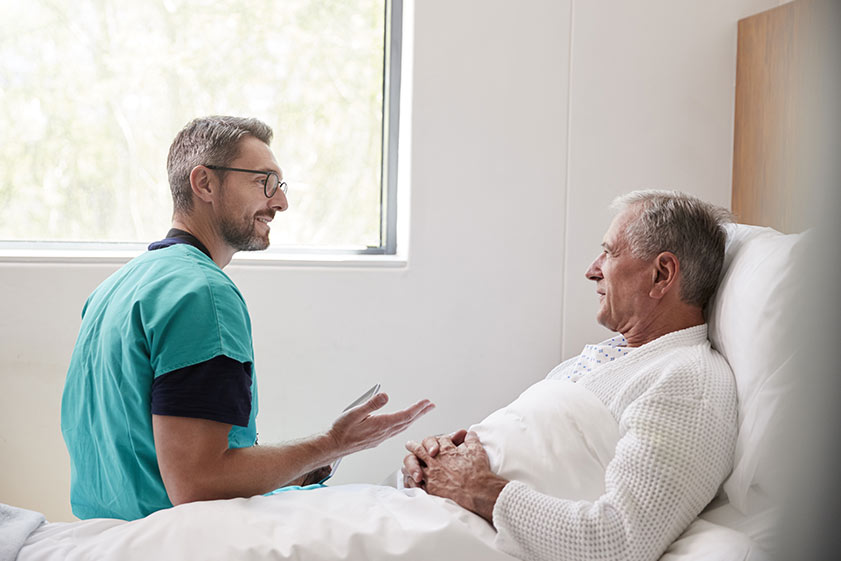Bedsores in the elderly are quite prevalent, particularly in those who have impaired mobility. The body works best when it’s in a constant state of movement, so blood can flow properly. If a person has difficulties adjusting his/her position, bedsores might develop. For example, people in wheelchairs are more prone to developing bedsores on a daily basis.
Fortunately, our team members are aware of such problems and they can provide personalized care for your loved ones. Keep reading to learn more about bedsores and how they can be prevented, so your family members live happier and more comfortably.
Signs of Bedsores in the Elderly
Bedsores are usually more complex than simple irritations of the skin. They can become painful and make your loved ones more predisposed to infection. Here are some of the most common signs and symptoms of bedsores in the elderly:
- Discolored skin that is warm to the touch
- Itching and burning skin
- Discoloration and open blisters
- Pain and discomfort
- Abrasions and wound formation
- Muscle, bones, and/or tendons become visible in worst cases
- Serious infections
The good news is that you can easily spot signs of skin discoloration and redness before the bedsores progress to later stages. This will help prevent infections and even damage to tissues underneath the skin.
How To Prevent Bedsores
Preventing bedsores is one of the best ways to care for your loved ones and avoid more serious complications and infections. Here’s how you can do it:
Reposition
This involves periodically moving and repositioning the body of a person with impaired mobility. It applies to people in wheelchairs as well as people confined to beds. Since they cannot constantly move their bodies, you or another family member can do it for them. As a rule of thumb, repositioning of the body should be done once every one or two hours.
Careful Inspection
Inspecting the skin can go a long way when it comes to preventing bedsores. Caregivers should carefully inspect the skin of the elderly who have difficulties adjusting their position in bed/wheelchair. By doing so, you are more likely to spot bedsores and prevent them from causing further skin damage or infections.
Using Special Mattresses and Cushions
Bedsores are also called pressure wounds because the weight of the body is pressing on the skin and causes injury. Apart from repositioning the body, using special mattresses and cushions that provide more comfort can also protect your loved ones.
Providing Adequate Nutrition
Providing your family members with the right combination of foods and ingredients will help them fight bedsores more efficiently. A healthy and nutritious diet helps the body heal any bedsores quicker and can prevent infections. Make sure that you encourage your loved ones to eat a balanced diet consisting of vegetables, fruit, lean meats, and healthy fats.
We are aware that bedsores can cause a lot of problems in the elderly and that’s why we strive to provide outstanding support and care for your loved ones. Contact us today and learn how our team members can make the life of your family members easier and happier.







